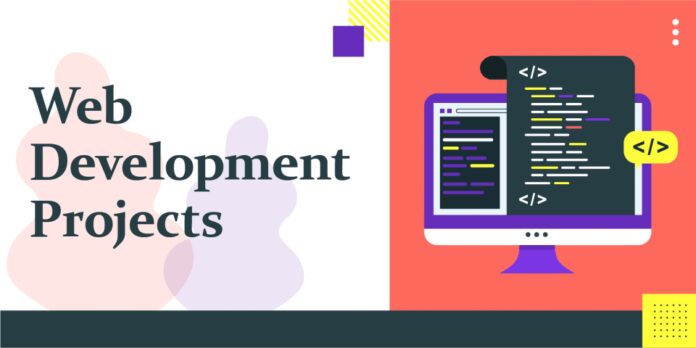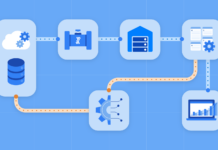Do you have a passion for cutting-edge technology and coding? Would you like to become an expert software engineer that develops amazing applications? If so, then this blog post is for you.
Here is valuable advice on how you can excel as a programmer. From understanding coding languages and technologies to getting your hands-on practical experience with projects, this blog will show you nine essential steps that will help you move closer to achieving your goal of becoming a skilled software engineer.
So, buckle up and get ready to level up.
1. Learn multiple programming languages and frameworks

As technology evolves, so too do the different coding languages and architectures.
To stay ahead of the game, you need an in-depth understanding of how various frameworks work together, which means acquiring mastery in as many as possible. Knowing more than one language opens up new career possibilities, allowing you to specialize in certain areas or move between jobs easily.
So, if you have a passion for tech, stay abreast of the changing environment by developing your coding skills with multiple languages and frameworks.
2. Take a boot camp to learn the fundamentals of software engineering

Joining a software engineering bootcamp is an excellent way to delve into software engineering and get hands-on experience with the fundamentals.
These bootcamps provide intensive, interactive courses that enable learners to become competent software engineers without enrolling in long, arduous university software engineering programs.
Through project-based frameworks and real-world problem-solving activities, software engineering bootcamps will allow students to quickly master software development software and concepts.
Not only that, but learners can also network with their peers and professionals in the software engineering industry, giving them invaluable experience in communicating ideas and opinions on technical topics.
In short, taking a software engineering bootcamp is a great way for aspiring software engineers to learn the skills and knowledge needed for success.
3. Read up on design patterns and best practices for coding

Becoming a good software engineer takes determination and hard work – but it also takes knowledge.
By reading up on design patterns and best practices for coding, you can equip yourself with the foundational understanding necessary for success.
From learning about various development protocols to familiarizing yourself with architecture basics, there’s a whole world of information waiting for you to explore – so don’t be afraid to dive in.
When done thoughtfully, research into design principles allows you to unlock the hidden value within each project, enabling greater creativity through a sound understanding. So don’t let the daunting task of learning every structure stand in your way; an eagerness to expand your skillsets will surely open new opportunities.
4. Practice problem-solving skills with algorithms, data structures, and other challenges
Algorithms and data structures are some of the most powerful tools in any programmer’s arsenal. Working on these challenges allows for deep thinking, develops your skillset, and helps build better coding habits.
Sharpening your problem-solving skills will make your work more efficient and help you confidently debug errors more quickly.
Many software engineers swear that taking on such endeavors is one surefire way to level up their craft. So don’t fear the unknown; embrace it like a champion software engineer.
5. Build projects to gain experience in development processes

Opting for projects should be your top priority if you aspire to become a good software engineer.
Projects allow you to get your hands dirty and develop technical knowledge, hone your problem-solving skills, and give you an understanding of the development process from start to finish.
From planning to implementation, troubleshooting bug fixes, and pushing code updates, these projects can simulate the real work environment and help prepare you for the challenges of being a software engineer.
Take the initiative, challenge yourself by pushing out of your comfort zone and diving headfirst into a project – these experiences will stay with you beyond just knowledge acquisition.
6. Network with experienced engineers to get advice and feedback on your work
Networking with experienced engineers provides invaluable firsthand advice on various situations you may run into, from coding difficulties to project management headaches.
Additionally, experienced engineers can provide honest feedback on your code, allowing you to improve and refine your skills and ensure your work meets industry standards. Connecting with the right people in the engineering community helps you build relationships that can give you useful tips and resources over time, as well as guide your career based on their insights and successes.
Don’t ignore this valuable opportunity to level your knowledge—network away.
7. Attend hackathons or coding competitions to hone your skillset
Participating in hackathons and coding competitions lets you put into practice the necessary coding skills you’ve acquired over time.
Through these challenges, engineers are often pushed to come up with creative solutions for complex problems – something that lies at the very heart of engineering excellence.
What’s more, attending coding competitions allows you to connect with like-minded peers, specifically in the technology space, who can help keep your skills sharp at all times.
So, if you wish to become a top-notch software engineer, sign up for hackathons and coding competitions today.
8. Get involved in open-source projects as a way to contribute back to the community

Joining open-source projects can be a great way to contribute to the global community of software engineers.
As a bonus, it’s also a unique opportunity to practice and grow your technical abilities. You can gain hands-on experience by working on various projects, collaborating with like-minded individuals, and seeing the direct impact of your work.
The idea is simple: when everyone contributes a bit, we can all make something bigger than ourselves. So why not join an open-source project?
Not only will you be giving back to the community, but you’ll also be sharpening your skillset – an added incentive for any software engineer looking to take their craft to the next level.
9. Join online communities related to software engineering for support and collaboration
Joining online communities related to software engineering can be incredibly helpful whether you’re trying to learn the basics or gain a deeper understanding of complex topics.
It’s also a great way to connect with like-minded people and get advice from experienced engineers.
Plus, you can collaborate on projects for the real-world experience or make invaluable connections that could lead to employment. There’s no limit to what you can discover when you join the growing world of software engineers online through online discussion boards and forums, webinars, tutorial courses, coding challenges, and more.
Make the most of opportunities that emerge from these amazing digital spaces – that’s just one of the secrets to becoming a great software engineer.
Conclusion

Becoming a top software engineer requires dedication, hard work, and a willingness to stay ahead of the curve. It’s an ever-evolving field with endless possibilities for growth and success.
By leveraging networking opportunities, attending hackathons and coding competitions, keeping up with industry trends through blogs and tech publications, joining open-source projects, and becoming part of online communities related to software engineering, you can make big strides in your career as a software engineer.









